|
South Australian Country Fire Service (CFS)
The S.A. Country Fire Service (CFS) has a complex radio network that consists of the SAGRN, VHF and HF radios. Generally the SAGRN is used for command and control communications, and the P25 VHF network is used for fire-ground traffic. The CFS use VHF narrowband frequencies shared with the CFA, and reuse the frequencies with different NAC tones to provide more channels.
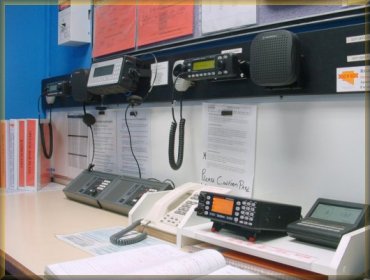
The administration headquarters of the CFS is located in Waymouth street in Adelaide, previously a 24 hour a day Operations Centre was located within this facility, however as of the 1st of July 2007 all Call Receipt and Dispatch functions for the CFS are now located within the 'Adelaide Fire' Communications Centre at the Metropolitan Fire Service headquarters in Wakefield street Adelaide.
The Adelaide Fire staff monitor many state wide GRN talk groups continuously. They also handle a number of ancillary functions vital to ensuring the safety and smooth running of incidents throughout the state.
All triple zero calls for CFS brigades are answered by the Adelaide Fire communications centre operators, once the details are gathered the operator will send a response page using the SAGRN paging network to the relevant brigades. The volunteers are then required to acknowledge receipt of the page within six minutes to ensure that the paging system has dispatched the message correctly.
All CFS brigades and SES units rely on the SAGRN paging network for response and general information messages. Samsung and Apollo pagers are utilised by volunteers and staff state-wide. The SAGRN paging service transmits on 148.8125mhz using the Flex 1600 protocol and has transmission sites at the same location as most of the GRN voice transmitters, this provides exceptional coverage throughout the settled areas of South Australia. Brigades members can receive alphanumeric messages advising them of turnouts or general information, weather warnings and fire ban information.
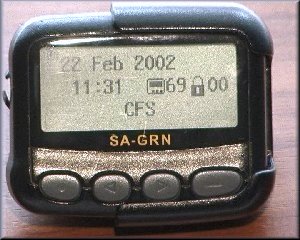
All CFS brigades have SAGRN and VHF radios fitted to fire appliances and fire stations. The SAGRN is generally used for command and control communications and the VHF network is utilised for the local fire-ground traffic. GRN simplex channels serve as a backup, should a network failure occur. As well as volunteer brigades the Fire spotting towers, Regional Headquarters, Training Centres and Fire bombing aircraft also use the SAGRN.
In 2011 the CFS rolled out digital Motorola XTS 2500 portable radios and XTL 5000 digital mobile radios, these replaced Motorola MCS 2000 mobile and MTS 2000 portable radios. All appliances carry one mobile radio and at least one portable, whilst command vehicles have two mobiles and two portables issued. Group officers and Brigade captains are also allocated one GRN portable or mobile radio each. All fire stations are fitted with one mobile radio, however Group control centres have three.
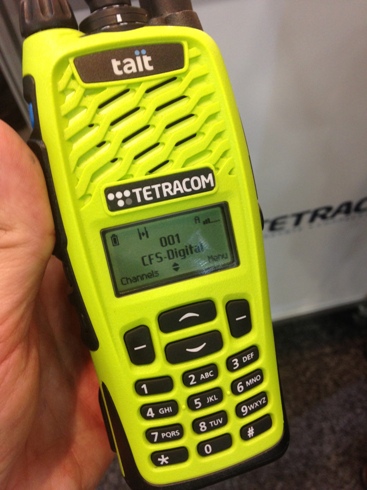
Tait TP9400 P25 VHF Portable Radio
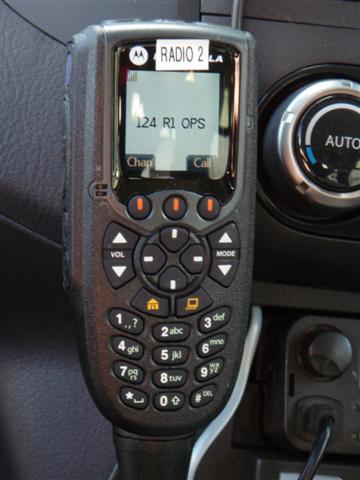
Motorola XTL 5000 Digital Mobile radio
Some radios also have the ability to initiate telephone calls, private calls and page other radios. All radios operating on the network also have access to the emergency button which when activated which will alert all other users and the Adelaide Fire Communication Centre that assistance is required immediately. The Communications Centre is fitted with multiple Motorola Centracom consoles, these have the ability to patch CFS and other agency talkgroups together, as well transmit on multiple talkgroups simultaneously.
The CFS State Airdesk operates from CFS Hq in Waymouth street in Adelaide. This is responsible for the dispatch and coordination of all aircraft within the CFS fleet. The CFS State Coordination Centre is also located here and is utilised for the coordination of fire and emergency response throughout the state.
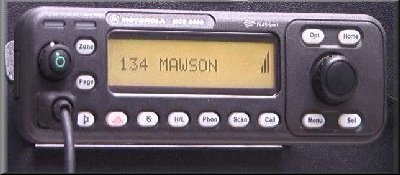
Motorola MCS 2000 Mobile Radio on CFS talkgroup 134
In remote areas the CFS use satellite telephones and High Frequency radios in fire appliances and some fire stations. The HF network also consists of two base stations (Para Wirra & Coober Pedy) that provide for remote monitoring via IP link as well as providing and access poing into the SAGRN. Typically many rural areas also use UHF CB channels to liaise with farmers and the general community.
On average the CFS responds to around 10,000 incidents a year.
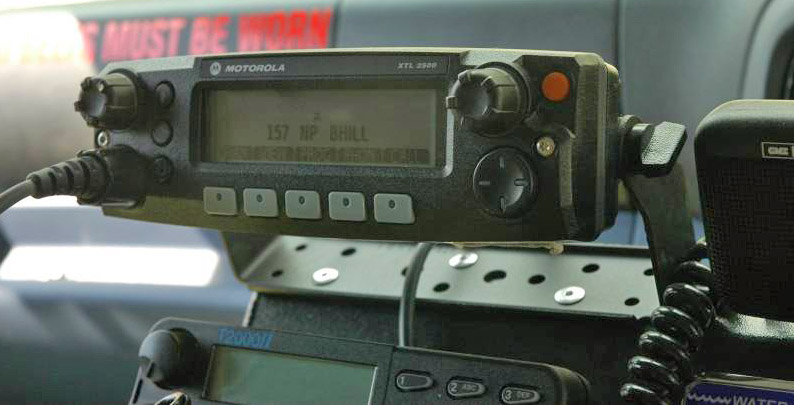
Motorola XTL2500 digital mobile radio fitted to a DEH fire appliance
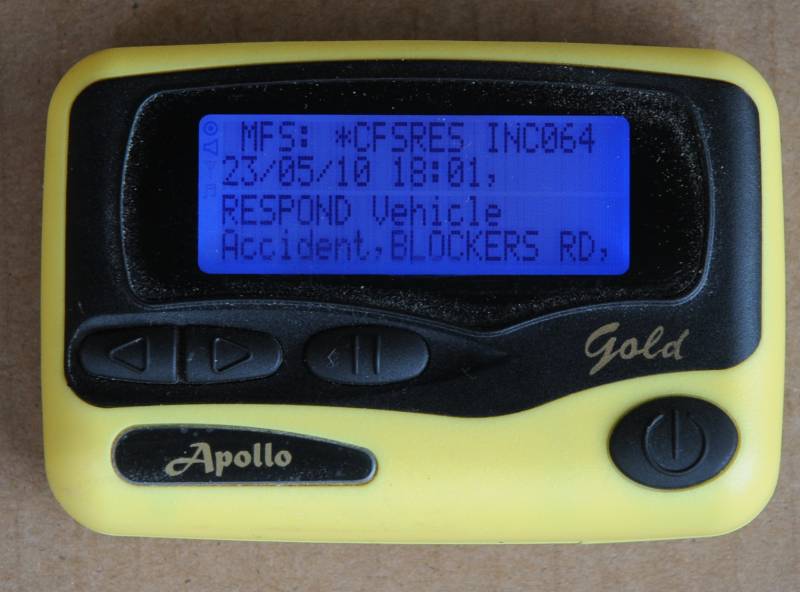
Apollo Gold SAGRN Pager
|